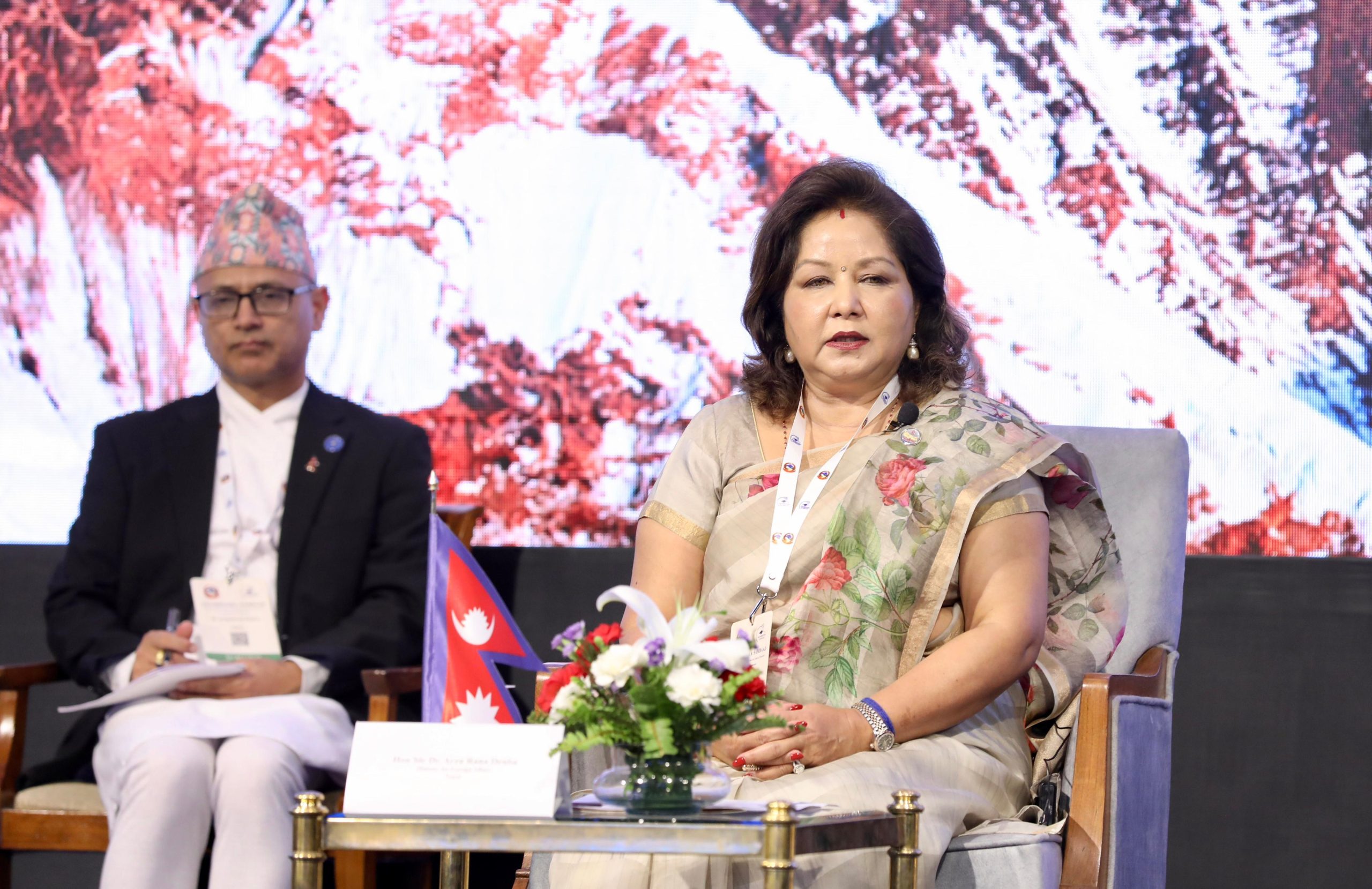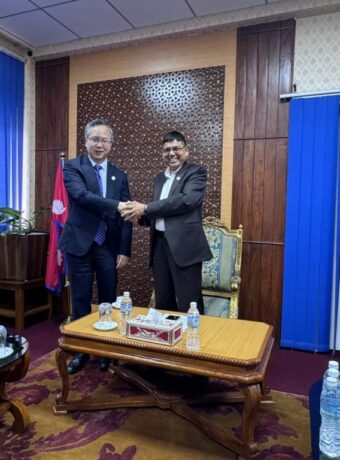Sagarmatha Sambad in Full Swing

Kathmandu – The much-anticipated Sagarmatha Sambad has officially commenced in Kathmandu today (May 16) and is in full swing. This inaugural edition, hosted by the Government of Nepal, is centered on the theme “Climate Change, Mountains, and the Future of Humanity.” Scheduled to run through May 18, the event has attracted prominent global figures, including heads of state and government, parliamentarians, policymakers, local government representatives, as well as leaders from intergovernmental organizations, the private sector, civil society, think tanks, academia, women’s groups, youth organizations, and the media.
The inaugural session began with opening remarks by Nepal’s Minister of Foreign Affairs, Dr. Arzu Rana Deuba. In her address, she emphasized the grave threats climate change poses to the Himalayas—one of the most vulnerable regions to its devastating impacts. She explained that the structure of the event is designed to explore ways to confront the existential threat of climate change, restore planetary health, and ensure the wellbeing of those who inhabit it.
COP-29 President Mukhtar Babayev, who is also Azerbaijan’s Minister of Environment and Natural Resources, delivered a keynote speech emphasizing the urgent need to prevent the depletion of water resources and the melting of ice caps. He highlighted the social and geopolitical consequences of the deteriorating condition of mountain ecosystems due to climate change. Babayev underlined that platforms like Sagarmatha Sambad can help develop actionable pathways for early warning systems, climate resilience, and other favorable outcomes.
Similarly, Bhupender Yadav, India’s Minister of Environment, Forest and Climate Change, expressed India’s commitment to climate action. He reiterated India’s dedication to integrating sustainability into its development paradigm, with the goal of achieving net-zero carbon emissions by 2070.
This dialogue platform seeks to make a meaningful contribution to global efforts aimed at promoting collective wellbeing. It aims to foster new ideas, perspectives, and solutions on shared global challenges through open discourse and reflection. Moreover, it envisions serving as an inclusive and constructive forum for addressing pressing environmental, economic, and socio-cultural issues that directly impact the future of humanity, while reinvigorating global commitment and action among key stakeholders.





Photos : Pradeep Raj Onta



